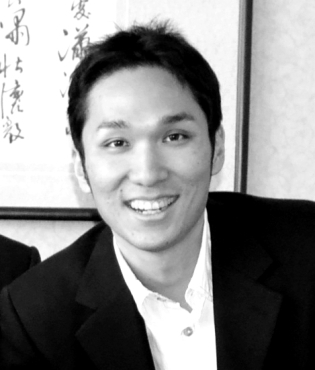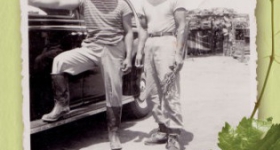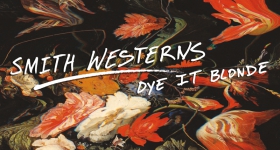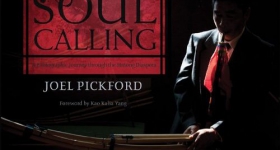If
there was ever literary proof that the need for love and validation
drives all human actions, then Peter Tieryas Liu’s haunting collection of short
stories would provide it.
In
Watering Heaven, Liu’s book of existential exploration, the reader is
introduced to a cast of misfit protagonists in a series of stories that are
part folklore, part modern criticism, and all-over absurd.
Considering
that the first of the 20 stories, “Chronology of an Egg,” involves a woman who
lays an egg every time she has sex, it’s safe to say that Liu’s stories are a
bit unconventional.
But
this element of magical realism and slightly off-kilter storytelling is hardly
unwelcome. In fact, part of the reason why Liu’s stories are so fascinating is
because, despite some of their more fantastic elements, they are rooted in the
achingly real concepts of loneliness and loss.
Liu
not only touches upon some of the most complex topics in literature and modern
society, he poses questions: What does it mean to disappear? Is it possible to
fall in love in an instant?
How
do you define purity in art, and in artists themselves?
One
of the collection’s standout tales, “The Wolf’s Choice,” follows a protagonist
who attempts to change the negative trajectory of his life by getting extensive
plastic surgery. The consequences of his decision, however, leave him no
happier than he was prior to the surgery; if anything, it forces him to
confront the true ugliness that his personal narrative has taken on.
The
tale begins unconventionally, with a scientific formula, V=HD, describing the
concept of velocity (V) in relation to distance (D) and Hubble’s Constant (H) --
a number used to measure proportions of change. More effort (V), more progress
(D). Less effort, less progress and change.
Liu’s
formula tests the connections between change and effort. For the protagonist in
“The Wolf’s Choice,” then, deciding to change his appearance was a natural
reaction to the negative events leading up to the surgery, so he just didn’t
fight it.
“Somehow,
these three digits summarized the universe into a trinity of letters,
simplicity exemplified,” Liu writes. “It struck me, when I first learned the
variables, how it would have taken a thousand times more energy to resist
change than to accept it.”
It would have taken a thousand times more energy to
resist change than to accept it.

Peter Tieryas Liu
Liu’s
characters are, on the whole, the kinds of people that society would consider
losers or outcasts -- a failed filmmaker, a wannabe photographer, a corporate
employee who gave up his dream of designing video games long ago. They are all,
in their own ways, searching for validation, a way to reclaim their pride.
But
the lesson to be learned from their humdrum lives isn’t that it’s fine to
accept one’s social status as status quo. Rather, it’s that being a fringe
character means harboring an overwhelming desire to change oneself, to try on
different disguises and see which one will garner the most praise.
And,
ultimately, to have the capacity to understand what it means to truly
welcome and even crave change.
And
this is where Liu’s characters truly come alive. In each of the 20 short
stories, Liu paints a sort of postmodern landscape, unconstrained by time
periods or history or even the cities in which they take place. The setting is
sometimes Beijing, sometimes Los Angeles, sometimes New York. It actually
doesn’t matter. What does matter, however, is that Liu obviously chose these
cities because they are such bustling international hubs, ripe for moments
of transition, much the same way an airport might be.
And
though the characters and the stories are ostensibly different, their message
is ultimately still the same: people thirst for superficial changes because
they seek blank slates and a chance to start over.
In
“Staccato,” the protagonist explains how he escapes to Beijing for six weeks
each year to invent a “new me,” mingling with strangers with newly concocted
identities each time. And the people he meets are, similarly, doing the same
thing -- everyone with a mask, an escape, a desire to recast themselves into a
different role.
The
problem with their annual retreat from reality, however, is that trying to
escape life by creating another identity is actually misdiagnosing the problem.
It’s not a new identity that these characters need, it’s a way to fix their
current issues.
Liu
brings up the concept of moths at one point in the story as a way to introduce
that idea of misguided purpose.
“When
moths burn themselves in candles and bulbs, it’s because they mix it up with
the light from the moon … they burn to death in distractions,” a sage stranger
tells the protagonist at one point in the tale. “Moths don’t eat, you know that?
They’re born, they transform, they f--k, then they die.”
There’s
a simplicity to the way that Liu breaks down these complicated concepts that
really resonates with readers. And though grim at times, Liu’s stories -- which
are tinged with influences from sci-fi/horror films and even a bit of Chuck
Palahniuk’s gritty aesthetic -- are, in the end, reflective. His writing is
distinct in its flair for the eccentric, but it is his ability to draw
parallels between his imagination and the madness of everyday life that truly
makes Watering Heaven a timeless collection.
Joyce Chen is a second-generation Taiwanese
American journalist and current web editor at Us Weekly, where she pores over
celebrity court cases, recaps “The Bachelorette,” and wades her way through all
things entertainment and gossip -- with tongue firmly in cheek, of course. She
was previously a multimedia editor at the New York Daily News, and originally
hails from Cerritos, CA, graduating with degrees in print journalism and
psychology from the University of Southern California, where she was the
editor-in-chief of the Daily Trojan. Her writings have been published in People
magazine, Los Angeles magazine and the Los Angeles Daily News.









Comments